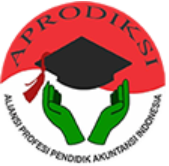IMPROVING STUDENTS' MOTIVATION OF LEARNING USING BLENDED LEARNING STRATEGY FACILITATED WITH VARK LEARNING STYLE MODEL
DOI:
https://doi.org/10.21831/jpai.v12i2.2705Abstract
The type of this research is Classroom Action Research aimed to improve students' Motivation of Learning of Grade X AK 1 SMK Negeri 1 Bantul Academic Year of 2013/2014.
The research is done in two cycles uses two kinds of data collection techniques, i.e. observation and questionnaire. The data collected was analyzed by qualitative analysis using three steps, data reduction, data presentation and conclusion formulation. The analysis is completed with descriptive quantitative analysis to calculate the score of Accounting Learning Motivation.
Based on the research result, the implementation of Blended Learning Strategy facilitated with VARK Learning Style Model is able to improve students' Accounting Motivation of Learning of the grade X AK 1 SMK Negeri 1 Bantl accounting academic year of 2013/2014. It is proven by the improvements of X AK 1's average score of Learning Motivation from 76,71% on the first cycle and reaches to 84,18% on the implementation of the second cycle. This improvement shows that using Blended Learning Strategy facilitated with VARK Learning Style Model, the students' Motivation of Learning is increasing classically, without any domination from a few of students of the class.
Keywords: blended learning, VARK learning style model, motivation, motivation of learning
Downloads
Published
How to Cite
Issue
Section
License
Authors who publish with Jurnal Pendidikan Akuntansi Indonesia journal agree to the following terms:
- Authors retain copyright and grant the Jurnal Pendidikan Akuntansi Indonesia journal right of first publication with the work simultaneously licensed under Creative Commons Attribution License (CC BY 4.0) that allows others to share the work with an acknowledgment of the work's authorship and initial publication in this journal.
- Authors can enter into separate, additional contractual arrangements for the non-exclusive distribution of the published version of the work (e.g., post it to an institutional repository or edit it in a book), with an acknowledgment of its initial publication in this journal.
- Authors are permitted and encouraged to post their work online (e.g., in institutional repositories or on their website) before and during the submission process, as it can lead to productive exchanges, as well as earlier and greater citation of published work.






